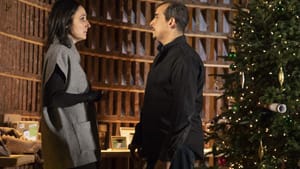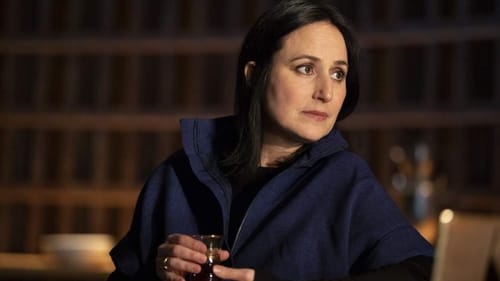Stay in the Loop
BSR publishes on a weekly schedule, with an email newsletter every Wednesday and Thursday morning. There’s no paywall, and subscribing is always free.
The dollhouse through a different door
Playwrights Horizon presents Heather Raffo’s ‘Noura’

Noura, currently receiving its New York premiere at Playwrights Horizons, continues the hottest trend in American theater: reimagining A Doll’s House. But unlike Lucas Hnath’s A Doll’s House, Part 2 — which, for all its cheek, hews closely to Ibsen’s original — playwright Heather Raffo uses the progenitor’s themes to explore an experience rarely represented on stage.
That would be the lives of Iraqi Christian refugees resettled in the United States, affluent and outwardly assimilated but uncomfortable in their new identities. In a program note, Raffo writes of the clash between an American ethos that privileges individualism and Middle Eastern culture, which prizes family and community. Living in a diaspora, refugees like those at the heart of this tender but probing play limn the past and present to create a future.
Identities, past and present
That duality nicely complements the major issues Ibsen addressed 140 years ago: change versus stagnation; passion versus comfort; living authentically versus feeling trapped. Noura (sensitively played by Raffo) is not a carbon copy of her almost-namesake: an architect and feminist, she has an identity of her own and a loving, coequal marriage to Tareq (Nabil Elouahabi, sympathetic and touching), her doctor husband.
Still, Noura finds it hard to leave the past behind. Andrew Lieberman’s set design offers a literal representation of this, its austere minimalism inflected with classic Arabic influences. And as the family’s American passports finally arrive after eight years in New York, Noura balks at the Anglicization of her name, while her husband and son Yazan (Liam Campora) display comfort in their new monikers, Tim and Alex.
Mosul to Manhattan
As a writer, Raffo connects to Ibsen’s notion that the choices you have to make for survival can also break your spirit. Noura searches for echoes of her beloved Mosul, where her grandfathers carved churches from stone, while Tareq longs to have an American-born baby. The conflict of an intertwined pair who care deeply for each other but cannot fully comprehend their desires takes another form.

Noura sees the connection to her home culture in Maryam (Dahlia Azama), a newly arrived student raised in Iraq by Noura’s aunt, a martyred Christian nun. Their first scene together, which mirrors Nora’s tense encounter with Krogstad in A Doll’s House, shows how quickly hope and expectation can fade in the hard light of reality. (Speaking of lighting, Masha Tsimring’s chiaroscurist work is spot-on throughout). In a vibrant, spirited performance, Azama shows that Maryam wants nothing from Noura except respect and understanding, which she struggles to provide. Maryam has moved too far into the American realm of rugged individualism, a living monument in opposition to all of Noura’s values.
The play itself isn’t perfect — the plot occasionally takes predictable, soapy turns, especially with regard to Noura’s relationship with Rafa’a, a smitten family friend. (Matthew David gives a committed performance in the latter role.) Raffo could explore the dimensions and differences between them with a touch more nuance. Rafa’a’s Muslim faith and dark complexion have meant he's been othered throughout his life, in Mosul and Manhattan, but how that dynamic influences their bond is largely telegraphed.
Messy, scary, and true
Former UArts faculty member Joanna Settle’s production doesn’t always help matters. Pacing remains breakneck throughout, which doesn’t always allow the actors to realize a moment for its full effect. And although Noura is essentially a realist drama, the staging includes several visual aspects that suggest spectacle for its own sake.
In spite of its minor flaws, Noura (which was developed as a spotlight production in 2017 at McCarter’s LAB) tells a story that deserves to be heard. And Raffo shows how a contemporary writer can dialogue with a great work of the past by both respecting and rethinking it.
In A Doll’s House, Ibsen shows a woman whose thinking moves from self-doubt to certainty, an assuredness in what she must do to save herself. In Noura, Raffo charts the opposite course. Noura gradually leaves the surety of the past behind for something ambiguous, messy, and scary. Her journey feels true to life.
What, When, Where
Noura. By Heather Raffo, Joanna Settle directed. Through December 30, 2018, at Playwrights Horizons, 416 W. 42nd Street, New York, New York. (212) 564-1235 or playwrightshorizons.org.
Sign up for our newsletter
All of the week's new articles, all in one place. Sign up for the free weekly BSR newsletters, and don't miss a conversation.

 Cameron Kelsall
Cameron Kelsall